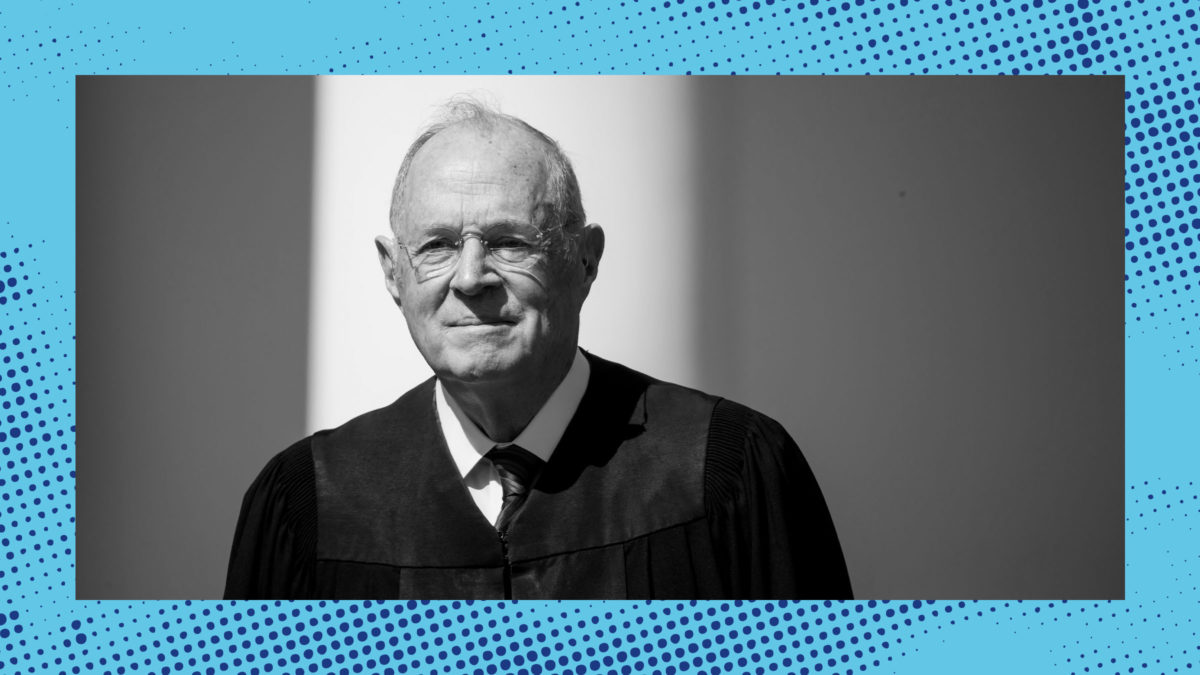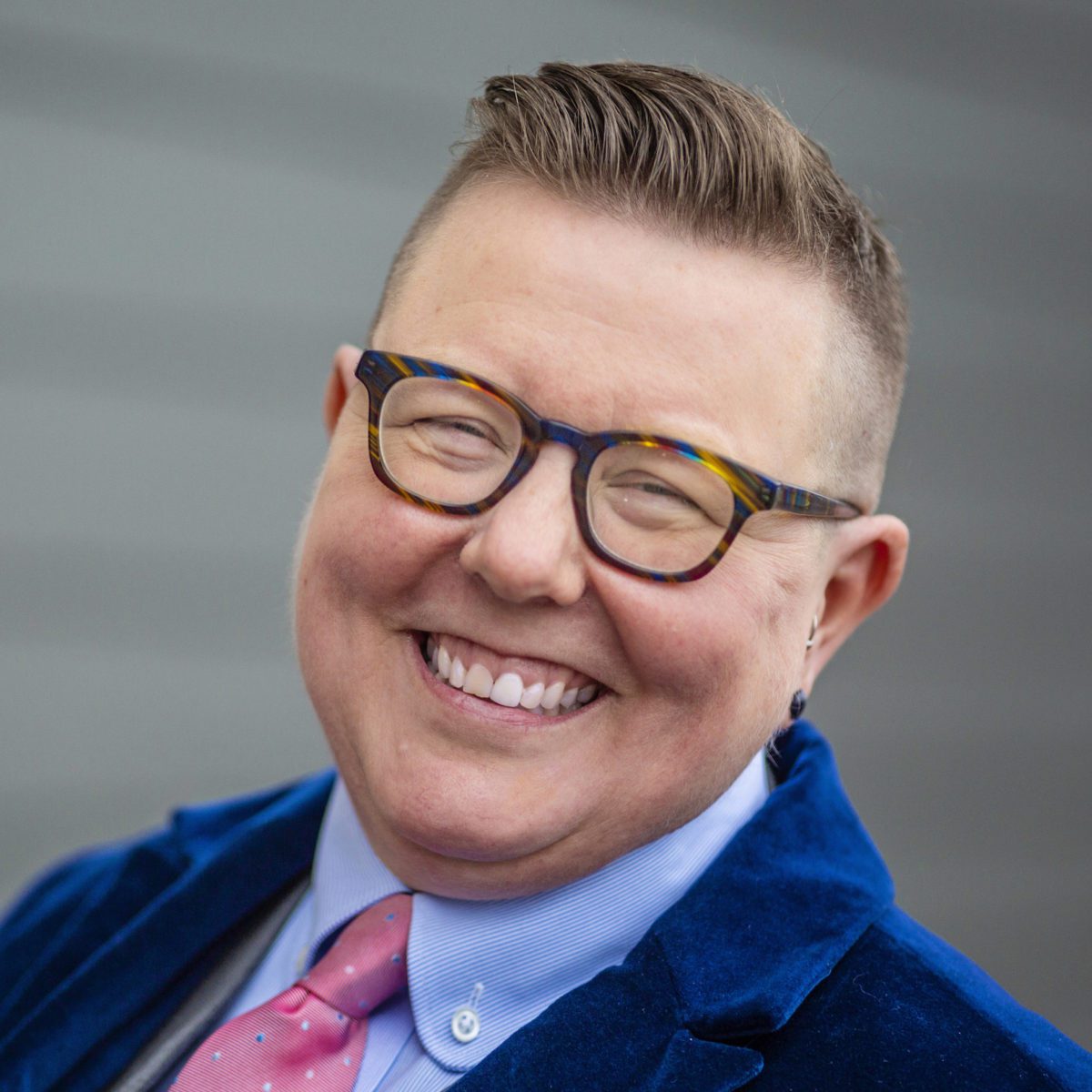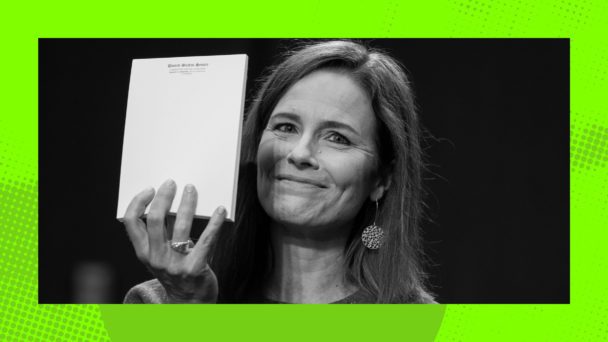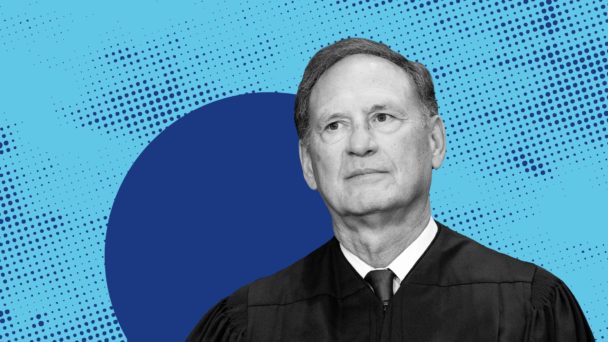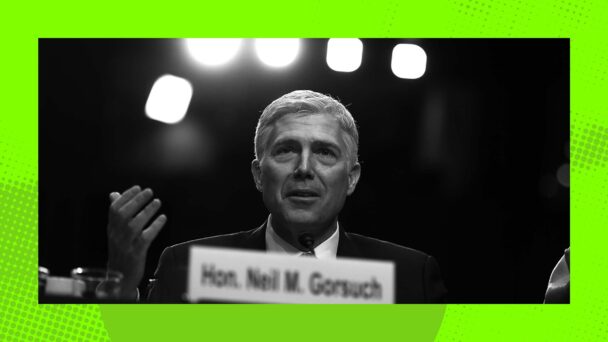Ever since Donald Trump locked in a Supreme Court supermajority of conservative culture warriors, plenty of venerated precedents have been on the chopping block. The first major one to fall, of course, was the constitutional right to abortion care, which the conservatives ended last June in Dobbs v. Jackson Women’s Health Organization.
Culture warriors, however, are loath to wrap up one culture war without having another on the chopping block. Even as Dobbs was hurtling toward oral argument at the Court, amicus briefs showed that conservatives activists pushing for an end to the right to abortion care were equally eager to get rid of the right to same-sex marriage. And thanks to some conspicuously religion-friendly language in Justice Anthony Kennedy’s majority opinion in Obergefell v. Hodges, the 2015 case that recognized that right, those activists might one day be able to use Obergefell itself to accomplish their goal
Although he cultivated a reputation as the Court’s swing vote, Kennedy is a lifelong Republican and conservative justice, but also of a type that no longer exists on the Court: a reliable vote for GOP political interests who also believed in civil rights for LGBTQ people. Kennedy authored the majority opinion not only in Obergefell but also in United States v. Windsor, which got rid of the Defense of Marriage Act in 2013, and Lawrence v. Texas, which struck down Texas’s same-sex sodomy law in 2003.
That “lifelong Republican” part of his résumé, though, meant he likely spent a good deal of time with anti-LGBTQ bigots, and he wasn’t prepared to throw them under the bus. In his Obergefell opinion, he couldn’t help but include some very-fine-people-on-both-sides language, acknowledging the difficulties it presented to people “who adhere to religious doctrines” and would “continue to advocate with utmost, sincere conviction that, by divine precepts, same-sex marriage should not be condoned.” He went on to say that the First Amendment would protect religious organizations “which seek to teach the principles that are so fulfilling and so central to their lives and faiths, and to their own deep aspirations to continue the family structure they have long revered.”
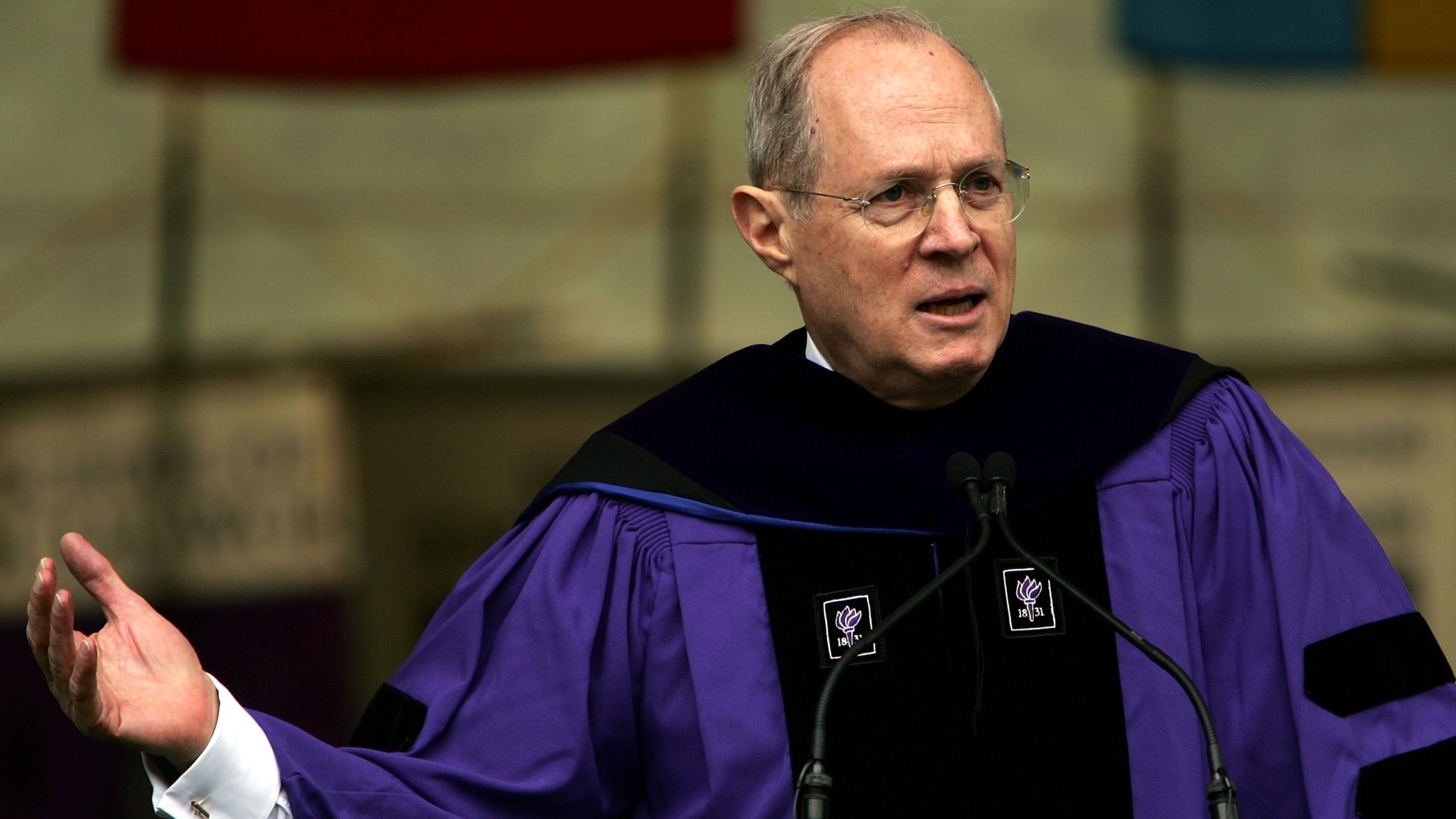
When you support LGBTQ rights but also it’s complicated (Photo by Spencer Platt/Getty Images)
Kennedy also seemed to want to make sure anti-LGBTQ bigots didn’t have to feel like they were bigots. “Many who deem same-sex marriage to be wrong reach that conclusion based on decent and honorable religious or philosophical premises,” he wrote. “Neither they nor their beliefs are disparaged here.”
This aspirational rhetoric falls apart under the slightest bit of scrutiny. The beliefs of the amorphous “they” are absolutely disparaged here—at least, in the eyes of those who profess them. This is exemplified by Chief Justice John Roberts’ dissent in Obergefell, in which he explained the concept of marriage by noting that “for the good of children and society, sexual relations that can lead to procreation should occur only between a man and a woman committed to a lasting bond.” Justice Samuel Alito’s dissent bemoaned “marriage’s further decay”; Justice Antonin Scalia’s dissent called the result a “threat to American democracy.”
The first person to deploy Kennedy’s words in Obergefell to undercut rights for LGBTQ people was, hilariously, Kennedy himself. In his majority opinion in Masterpiece Cakeshop v. Colorado, he cited his Obergefell opinion to explain that anti-LGBTQ bigotry is a protected form of expression that allows conservative cakemakers to refuse service to same-sex couples without violating a state antidiscrimination law. The First Amendment, he explained, ensures that religious organizations and persons are protected when they seek to express their anti-LGBTQ views. In a concurring opinion, Justices Clarence Thomas and Neil Gorsuch also latched onto Kennedy’s language in Obergefell, highlighting his acknowledgement that opposition to same-sex marriage “long has been held—and continues to be held—in good faith by reasonable and sincere people here and throughout the world.”
Distressingly, anti-LGBTQ litigants tried to extend this reasoning earlier this term when the Court heard oral arguments in 303 Creative v. Elenis, a case brought by yet another Colorado creative professional—this time a website designer—who is terrified they might have to somehow engage with same-sex couples. There, the attorney for 303 Creative tried to rewrite the central holding of Obergefell—the part that made same-sex marriage constitutional—by referring to “the Court’s promise” to “protect those who would believe marriage is between a man and a woman from having to express a view that violates their conscience.” It’s that language in Obergefell that allows bigots opposed to same-sex marriage to thread an ambitious needle: It’s fine to deploy religion in the limited context of discriminating against same-sex couples, because deploying religion to discriminate on other bases—against racial minorities, for example—is unjustifiable and, in any case, would never happen.
This is wrong. As Lewis and Clark Law School professor Jim Oleske pointed out on Twitter, religious objections to interracial marriage were common enough that President Harry Truman publicly expressed his religious objections to interracial marriage even into the 1960s. Oleske also notes that the trial court in Loving v. Virginia, which upheld the state’s ban on interracial marriage before the Supreme Court overruled it in 1967, based its ruling in part on religious grounds, writing that “Almighty God created the races white, black, yellow, malay and red” and “placed them on separate continents. That God separated the races, the lower court continued, “shows that he did not intend for the races to mix.” Even as Loving struck down interracial marriage bans, religious objections to the practice were hardly uncommon.
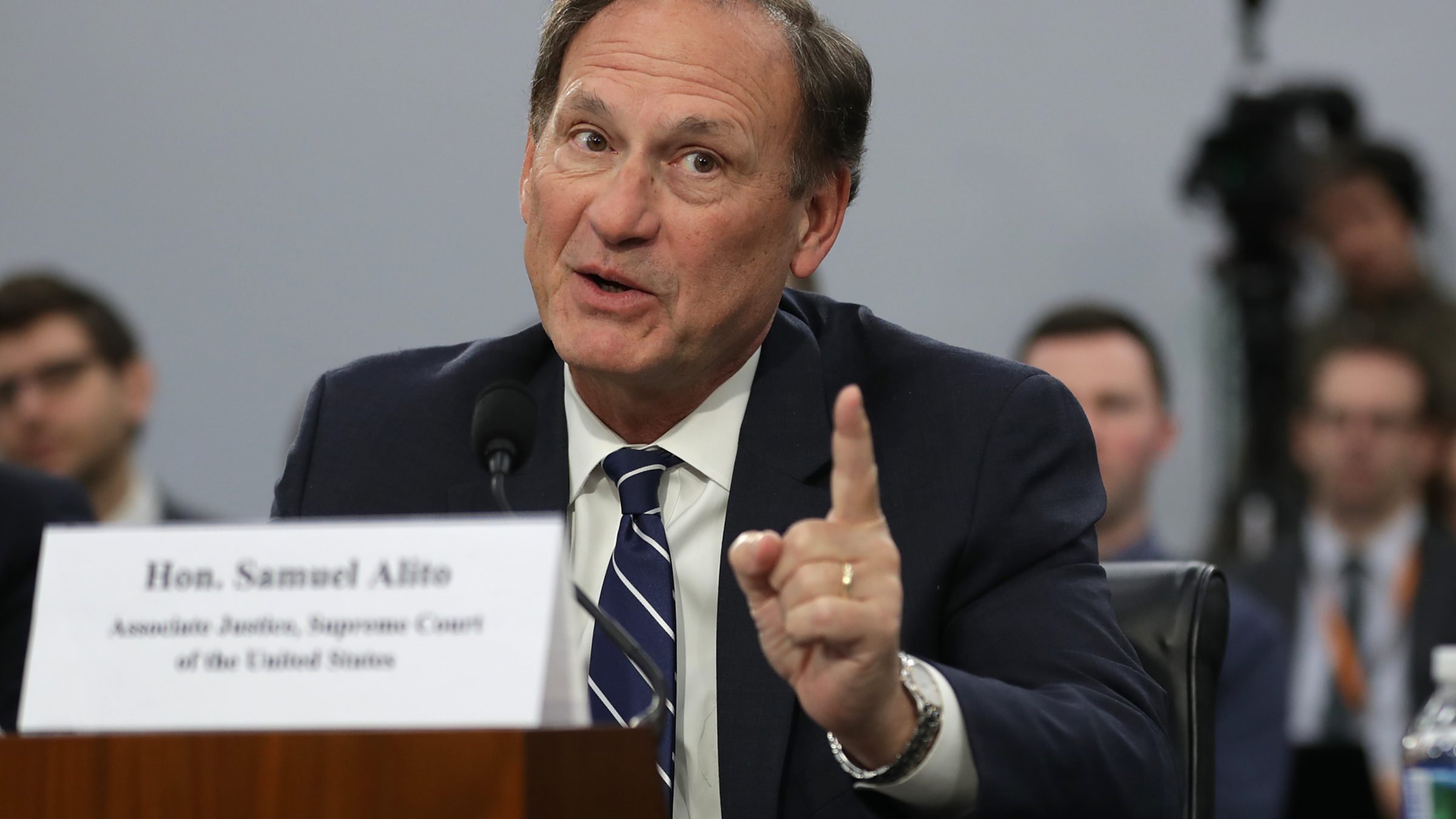
When you do NOT support LGBTQ rights and it’s NOT complicated (Photo by Chip Somodevilla/Getty Images)
The current Court’s conservatives insist they would never accept a religious argument enabling racial discrimination. In an opinion in 2021, for example, Alito declared it “insulting” to “lump[] those who hold traditional beliefs about marriage together with racial bigots.” But there isn’t really a principled way to draw a line here. If religious objections trump everything else—as they have in cases about birth control, abortion, and same-sex marriage—why is race discrimination definitely, unquestionably beyond the pale? Right now, the only thing separating them is some perilously-close-to-dicta language in Obergefell that promised religious conservatives they could continue to refuse to honor same-sex marriages in any meaningful fashion.
Kennedy’s opinion in Obergefell reads like the work of a man genuinely trying square his own beliefs about same-sex marriage with those around him who think differently. It seems very unlikely that he thought his own words—his concessions to the other side—would one day fuel efforts to roll his accomplishments back. But today, they give anti-gay activists an argument for imposing imposing a very narrow conception of “religious liberty” on the rest of the country. Distressingly, Obergefell promised them, in large part, that they could count on success.
